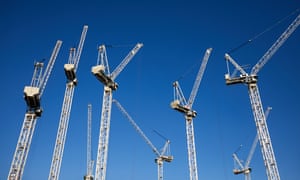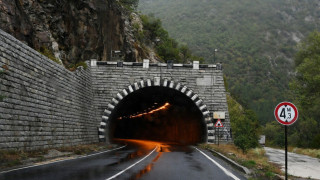

MPs are entering the crunch phase of the Brexit process against a backdrop of better news from the British economy, despite growing alarm over the political deadlock and the lingering risk of a no-deal departure from the European Union, according to the latest Guardian analysis.
The Guardian’s monthly tracker of economic news showed employment reaching the highest levels on record and consumers continuing to spend on the high street, even as Britain’s departure from the EU looms.
However, business groups warned that the political situation has developed into a full-blown national emergency, with the uncertainty over Brexit putting their investment plans in jeopardy, paving the way for weaker growth in future. Theresa May’s seeking a short delay in the article 50 process from Brussels has also handed a double cliff-edge risk for companies to plan around.
Writing in the Guardian, David Blanchflower, a former member of the Bank of England’s interest rate-setting monetary policy committee, warned that the political chaos would feed through to the economy eventually.
“The concern is that the Brexit negotiations will drag on and that will have a major impact, especially on investment and other important areas of the economy. The consequence of that would likely be falling living standards.”
To gauge the impact of Brexit on a monthly basis, the Guardian is monitoring eight economic indicators, along with the value of the pound and the performance of the FTSE 100.
Economists made forecasts for seven of those barometers before their release, and in four cases the outcome was better than expected. In three cases, the result was worse than forecast.
Companies stepped up their hiring to add another 222,000 people to the workforce in the three months to January, the latest available figures. This took the overall number of people in work to a fresh record high of 32.7 million. Unemployment also edged down to the lowest point since the start of 1975 and wage growth remained above the rate of inflation at 3.4% a year.
The unexpected strength of the jobs market has fed through to the Treasury, as higher levels of income tax have benefited the public purse, giving Philip Hammond a boost at this month’s spring statement.
The chancellor said he now had as much as £26.6bn held in reserve from the surprise strength in the public finances to spend on either ending austerity, or an emergency stimulus package to support the economy should the UK leave the EU without a deal.
However, the unexpected strength of the jobs market has surprised some analysts, who warn that Brexit uncertainty is likely to have encouraged companies to hire workers to meet demand rather than invest in technology – risking weak productivity gains and slower economic growth in future.
GDP growth unexpectedly rebounded in January, though remains sluggish. Britain is also exposed to a slowdown in the eurozone and the wider global economy, just as disruption from Brexit intensifies.
Despite the better news over the short term, developments in the economy since the Brexit vote have damaged Britain versus a scenario where the country did not vote to leave the EU.
The Bank of England believes the Brexit vote is currently costing the economy about £40bn a year, or £800m a week of lost economic output. GDP is as much as 2% lower than if there had been no significant domestic economic events during Britain’s membership of the EU.
Should parliament remain mired in gridlock for longer, economists warn that business investment is likely to remain constrained. Corporate spending already fell in every quarter of 2018, the first time this has occurred since the last recession in 2009.
Writing in the Guardian, Andrew Sentance, another former MPC member, said that the strengths of the economy could evaporate should MPs fail to overcome the Brexit impasse or sleepwalk into a no-deal scenario.
“Politically, the UK is at its most fragile state since the second world war. But the resilience of the British economy – built up since the turnaround we achieved in the 1980s and 1990s – is now supporting us in difficult times. That could change, however, if the current political crisis over Brexit is not quickly resolved,” he said.













Leave a comment